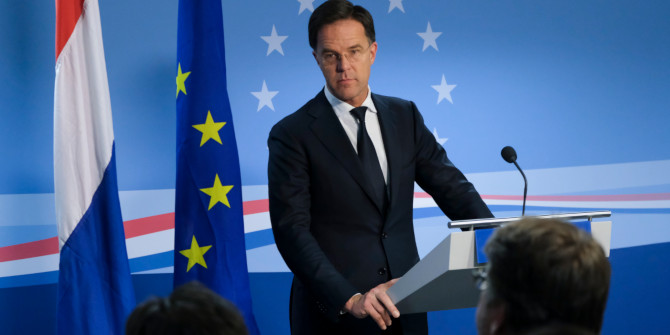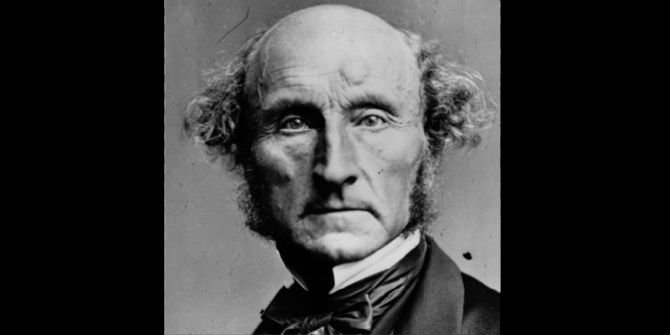When states are guilty of human rights violations or other crimes, they often face calls to pay reparations to their victims. But is it fair for the citizens of these states to share the blame for actions they had no personal involvement in? Drawing on a new book, Avia Pasternak explains why it can be reasonable for citizens to take responsibility for the wrongs of the past.
It is not unusual for states to be held responsible for their wrongdoings. States pay compensation for unjust wars, as did Iraq in the aftermath of its 1990 invasion of Kuwait. They sometimes pay reparations to the victims of their human rights violations, as did West Germany to Israel in the aftermath of the Second World War. And the descendants of the victims of historical wrongs – from colonialism to slavery – often demand that present-day states take responsibility for their past involvement in them.
Yet state responsibility has a troubling feature. States are corporate agents, and when they turn to the public purse to finance their corporate liabilities, it is their flesh and blood citizens who end up paying the price. Some might think that this is entirely justified, as all citizens share the blame for their state’s wrongdoings. But this can’t be right. Today’s generation does not share the blame for the wrongs of the past. And even with regard to present-day state policies, many citizens have no way to influence them, or have done what they can to protest against them. Why should these citizens pay for their state’s wrongdoings, if they themselves don’t share any blame?
In a recently published book, I argue that the answer to this question lies in common intuitions about collective action and the obligations that flow from it. People act together when – at a minimum – they intend to “do their part” so that a goal they share with others is realised. We commonly think that acting with others in this way brings about certain rights and obligations: when we contribute to a shared endeavour, we are entitled to a share of its fruits.
At the same time, we also share the responsibility to fix the wrongs that we together bring about. Furthermore, in complex and institutional groups it is often the case that decisions reached by the group are not supported by all its members. Yet, often, these members continue to play their role in the group, despite their reservations about a specific policy. When they do so, they act together with the rest of the group. They are part of the “we” that enacted the group’s decision. As authors of that group act, they bear special responsibility for its outcomes.
This familiar framework proves to be very helpful in thinking about the obligations of citizens with regard to their state’s actions. For it suggests that, at least in democratic states, ordinary citizens are taking part in their state policies, or acting together to enact them. After all, most citizens in democratic states play some role in supporting their state’s ability to reach and to execute policy decisions: they contribute to the state tax system, they obey the state’s laws, they participate in its democratic decision-making process and so on.
Ordinary citizens’ participation in state policies is often not pivotal. But we don’t have to play a pivotal role in a group to be part of it or to share some responsibility for what we do in it together. And, as with all institutional groups, citizens do not have to support all state policies in order to be participating in them. As long as they are supporting their state more generally, in its capacity to reach and execute policies, they are party to the “we” who takes part in them.
When we hold states and their citizens’ responsible for blunders and wrongdoings, we must consider the regime type of the state in question.
Some might object that citizens don’t choose to be part of their state, so should not be encumbered with such responsibilities. But this objection fails the test of common sense. We often find ourselves part of groups which we have not consciously and deliberately joined – from our families to our religious affiliations. Many of us are deeply attached to these groups, and sense that they generate important moral obligations for us.
And we are right to think so whenever we don’t view our group membership as alien to us or forced upon us against our will. Most people don’t view their family or religious membership in this way. And many people don’t view their citizenship in this way either. We may not have chosen it but – as attitude surveys show time and again – most citizens, at least in real-world democracies, see their state membership as an important part of their identity. Their participation in the state therefore generates important moral obligations.
This model of collective responsibility in the state has practical implications. First, it explains why most citizens in real-world democracies do indeed share the responsibility to fix the wrongs committed by their governments. As I argue in my book, it can also explain why citizens of today share responsibility to fix the lingering harms of the past.
Second, the model also suggests that – in contrast with international legal practice – citizens of some states should not be held responsible for their state’s wrongdoings. Consider for example the citizens of highly authoritarian states, as was Iraq during its 1990 invasion of Kuwait. Most Iraqi citizens at the time were participating in their state: serving in the military, taking part in political rallies, or informing on political dissidents.
But given the extraordinary levels of brainwashing and political repression they were subjected to, we should be wary of holding them responsible for their state’s blunders. For most of them were not given the opportunity to reflect upon their citizenship status, and for all we know, given all the horrors their state subjected them to, they had every reason to see their membership in it as forced on them against their will.
The core conclusion my analysis leads to, then, is that when we hold states and their citizens’ responsible for blunders and wrongdoings, we must consider the regime type of the state in question. In democratic states, typically, most citizens willingly participate in their state and share responsibility to fix its wrongdoings. But in highly authoritarian states it is unlikely to be so.
When the international community imposes sanctions and compensation schemes on such states, it is, in fact, unjustly saddling their ordinary citizens. It is precisely in those cases that more careful and nuanced models of responsibility attribution should be found, ones that “pierce the veil of the state” and go after those who do share the blame for the state’s wrongdoing.
For more information, see the author’s new book, Responsible Citizens, Irresponsible States: Should Citizens Pay for Their States’ Wrongdoings? (Oxford University Press, 2021)
Note: This article gives the views of the author, not the position of EUROPP – European Politics and Policy or the London School of Economics. Featured image credit: Sarah Reichenbach / The Advocacy Project (CC BY-NC-SA 2.0)






European nations including Britain & Spain have profited immensely off the wealth gained by conquest and exploitation. To this day Europeans continue to occupy the lands they conquered including the USofA, Latin America and Australia. To this day they only reluctantly acknowledge, apologise and try to remedy as fully as possible the injustice done to so many indigenous native peoples. Attempts should at least me made to aggresively “re-educate” in prisons the right wing groups who remain hostile to the idea of exploited peoples from Latin America and Africa attempting to “return the favour” of past conquests by now emigrating to USofA and Europe
Sins of the father is something I don’t approve of myself. I think wanting to lock people up to re-educate them probably proves more about yourself than them.
If the UK, Canada and Australua could make a beginning by educating her youth about the historical injustice and efforts being made to remedy that injustice…(watch Sardar Udham just released on Amazon prime about the Jallianwalla Bagh massacre)
If the UK, Europe,, US, Canada and Oz could also make attempts to aggresively fund the clean energy needs of the Developing world which is going to unfairly bear the consequences of Carbon pollution of those developed nations….
A combination of the above would be welcomed by Frazer ?